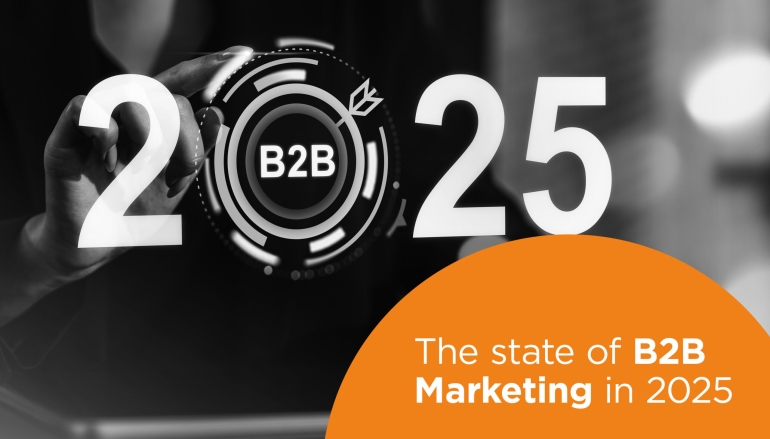
B2B Marketing Trends in 2025: Essential Insights for Success
Understanding B2B Buyer Behaviour Trends
Businesses must adapt to the evolving B2B buyer behaviour trends as we approach 2025. An essential shift is towards a more informed buyer who conducts extensive research before engaging with a vendor. This change in behaviour means that marketers need to focus on creating valuable content that educates potential buyers throughout their decision-making process. Furthermore, there is a noticeable demand for personalisation; B2B buyers expect experiences specialised to their specific needs and preferences. Companies must utilise AI marketing tools such as Robotic Marketer to deliver personalised campaigns effectively. Highlighting the importance of creating a seamless user experience across all touchpoints cannot be overstressed, as it directly impacts the success of your marketing strategy.
The Rise of AI and Automation
AI marketing and automation technologies are reshaping the future of B2B marketing. With tools such as Robotic Marketer, businesses can execute sophisticated marketing campaigns more time efficiently. AI enables predictive analytics, enhancing the precision of targeting and personalisation efforts. Automation tools help streamline repetitive tasks, allowing marketing teams to focus on strategy and innovation. These advancements lead to more effective campaigns, higher engagement and improved ROI. By incorporating AI and automation into their strategies, companies can stay ahead of the curve and drive significant success in their marketing endeavours.
Shifts in Marketing Spend
Marketing spend is undergoing a significant transformation as we approach 2025. Companies are allocating more budget towards digital marketing channels, driven by their measurable impact and effectiveness. Social media, content marketing and PPC advertising are at the forefront of this shift. With the advent of AI marketing, organisations can optimise their budgets more efficiently, ensuring maximum returns on their investments. Additionally, businesses are starting to invest in fostering relationships with influencers and thought leaders within their industries. These collaborations enhance brand credibility and reach, ultimately driving higher engagement and loyalty. It is important to monitor these shifts and adapt your marketing spend accordingly to remain competitive in the B2B landscape.
The Emergence of AI in Budget Allocation
AI-driven tools are becoming integral to budget allocation decisions. With real-time data analysis and predictive insights, these tools can identify which channels and campaigns provide the highest ROI. This precision allows businesses to adjust their marketing spend dynamically, ensuring optimal resource utilisation. Furthermore, AI marketing tools facilitate scenario planning, enabling marketers to anticipate trends and allocate budgets proactively. By leveraging AI for budget management, companies can achieve greater financial efficiency and maximise the impact of their marketing efforts.
Technology Adoption Curve
The adoption of advanced technologies is pivotal for businesses aiming to thrive in 2025’s competitive B2B environment. AI, machine learning and advanced analytics are not just trends but necessities for modern marketing strategies. Companies that integrate these technologies can expect to see significant improvements in campaign precision, customer insights and overall marketing performance. The technology adoption curve shows a rapid increase in the implementation of AI marketing tools. Robotic Marketer, for instance, is at the forefront of this change, providing businesses with the insights and automation needed to stay competitive. Organisations should prioritise technology adoption to harness the full potential of these advancements and achieve sustainable success.
Innovations in Digital Marketing
Digital marketing is continuously evolving, with new innovations emerging regularly. Virtual reality (VR) and augmented reality (AR) are increasingly being used to create immersive marketing experiences. These technologies engage audiences in novel ways, enhancing brand interaction and recall. Additionally, blockchain technology is gaining traction for its ability to provide transparency and security in advertising. Marketers must stay updated with these innovations and integrate them into their digital marketing strategies. Embracing these new technologies will not only enhance the effectiveness of marketing campaigns but also position businesses as leaders in their industries.
Marketers must take several actionable steps to navigate the changing B2B landscape successfully. First, understanding and adapting to buyer behaviour trends is paramount. Focus on creating personalised experiences and valuable content to engage and educate potential buyers. Second, embrace AI marketing and automation tools like Robotic Marketer to enhance efficiency and campaign effectiveness. Third, monitor shifts in marketing spend and allocate budgets towards high-performing channels. Use AI-driven tools for precise budget management and scenario planning. Fourth, prioritise the adoption of advanced technologies to stay competitive. Integrate AI, machine learning and analytics into your strategies to achieve superior results. Lastly, stay abreast of innovations in digital marketing and incorporate them into your campaigns to lead the market. Following these steps will ensure sustained success and growth in the evolving B2B marketing environment.



Leave a comment
Make sure you enter all the required information, indicated by an asterisk (*). HTML code is not allowed.